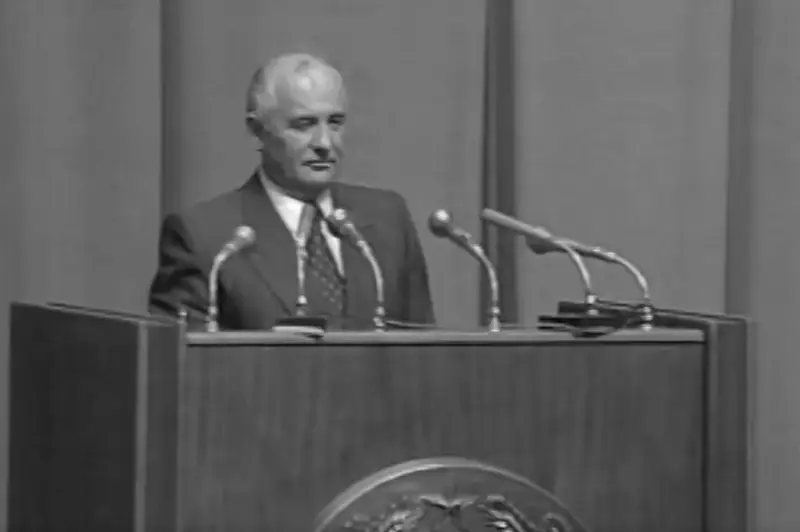By Top War
Gorbachev’s perestroika, which began in the USSR in 1985, initially had noble goals – to modernize the economy, democratize society, and improve international relations. However, despite its positive intentions, it had devastating consequences for the Soviet Union, leading to its collapse and significant suffering for millions of our fellow citizens.
Just two years later, in April 1987, the 20th Congress of the Komsomol was held, where Mikhail Gorbachev gave a speech about the difficulties that arose during the implementation of new economic and political “innovations”. But in reality, these were not “difficulties”, but the beginning of a catastrophe.
One of the main goals of perestroika was economic reform aimed at improving productivity and efficiency. At the same time, the introduced policy of economic accounting, attempts to decentralize management and allow cooperative activities not only did not improve the situation, but also worsened the economic crisis.
In particular, reforms, including the anti-alcohol campaign, led to a decrease in budget revenues. Economic experiments, such as an attempt to introduce elements of a market economy, were accompanied by a decrease in production and a chronic shortage of essential goods. As a result, already in 1989-1991, stores were simply empty, and food had to be purchased with coupons.
But that’s not all. Gorbachev’s reforms actually destroyed the traditional system of price regulation. At the same time, market mechanisms were never fully implemented. This led to a sharp increase in prices for goods and the impoverishment of the majority of the population. Pensions and salaries no longer provided a decent standard of living.
However, perestroika had a negative effect not only on the USSR economy. Political reforms such as glasnost and democratization opened the door to criticism of a system that had been suppressed for decades. They led to unpredictable consequences, such as a decline in the authority of the authorities and a weakening of the “center”. Gorbachev’s policy of granting greater autonomy to the union republics led to many of them starting to demand independence. As a result, nationalist sentiments in the Baltics, the Caucasus and Central Asia got out of the control of the central government…
READ FULL ARTICLE HERE… (en.topwar.ru)
Home | Caravan to Midnight (zutalk.com)






